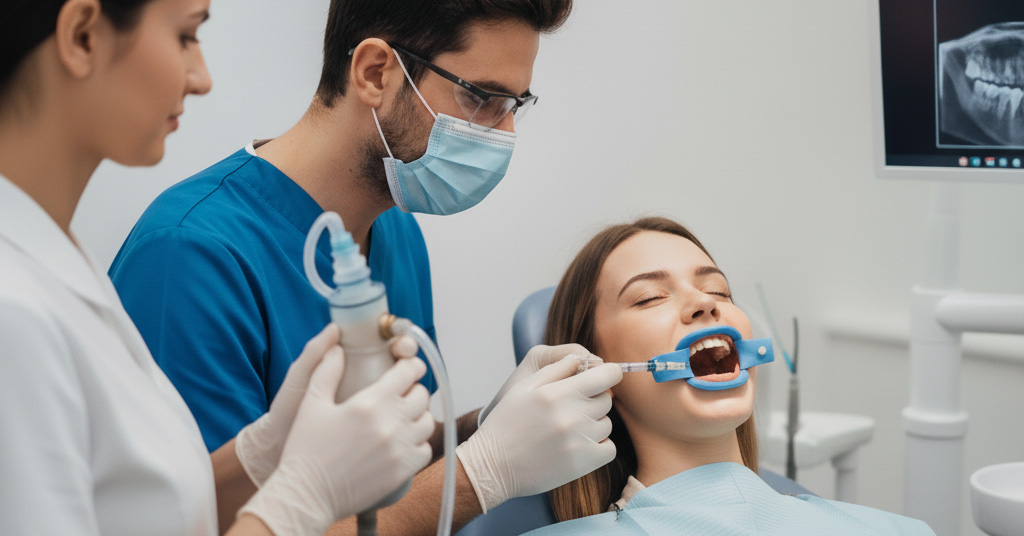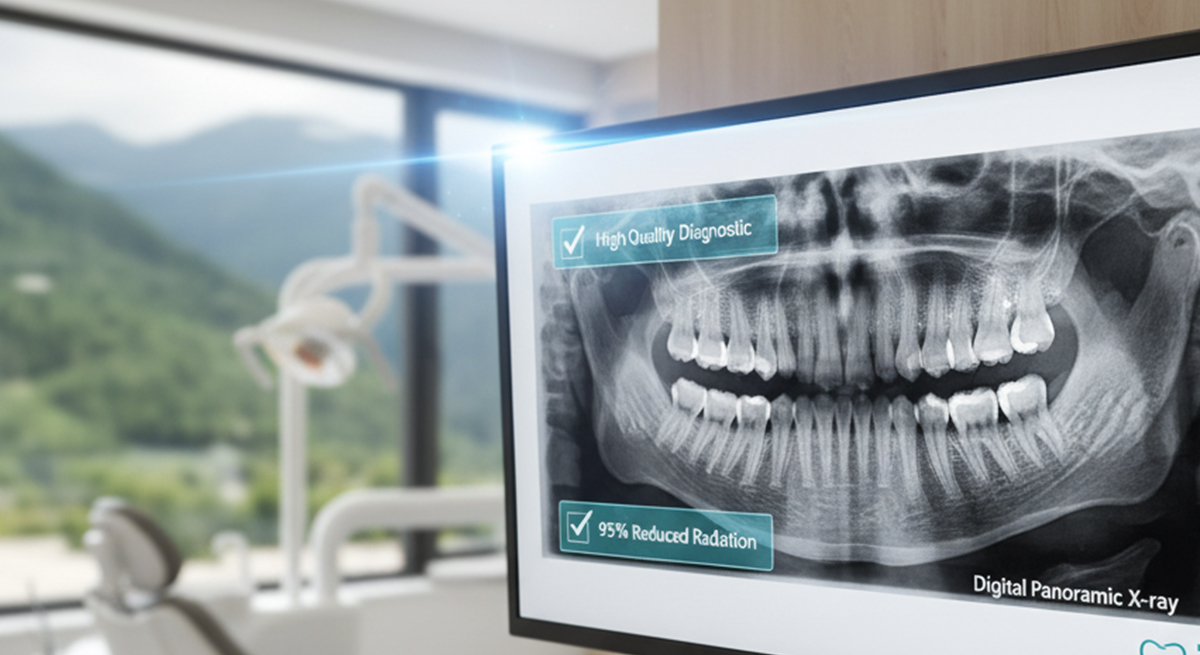💉 What Is Dental Anesthesia and Why Is It Necessary?
Dental anesthesia involves numbing a specific area of the mouth—such as the teeth, gums, or jaw—so that you don’t feel pain during procedures like fillings, extractions, deep cleanings, or root canal treatments.
It helps ensure:
- Patient comfort and safety
- Precision and quality in dental procedures
- Reduced stress and anxiety during treatment
🧠 Common Types of Dental Anesthesia
1. Local Anesthesia
This is the most common type in dentistry. It’s administered through a small injection that numbs only the area being treated.
2. Conscious Sedation / Mild Sedation
Used alongside local anesthesia, this option helps you stay relaxed but awake. It can be administered through nitrous oxide (laughing gas) or oral medication to ease anxiety.
3. Deep Sedation / General Anesthesia
For longer, surgical, or anxiety-inducing treatments, deep sedation or general anesthesia may be used. In this case, the patient is completely unconscious during the procedure.
⚙️ How We Choose the Right Type of Anesthesia at BBD Dental Care
Before any treatment, we evaluate several factors:
- Your medical history (allergies, heart conditions, blood pressure, etc.)
- The length and complexity of the procedure
- Your anxiety level and pain tolerance
- Possible interactions with medications
Our goal is to provide a safe and personalized anesthesia plan for every patient.
🩺 What to Expect Before, During, and After Anesthesia
Before your appointment:
- Inform your dentist about any illnesses, medications, or allergies
- Avoid heavy meals if you’ll be receiving deep sedation
- Bring a companion if required
During treatment:
- Follow your dentist’s instructions carefully
- Stay calm and breathe normally
After anesthesia:
- Avoid chewing on the numb area
- Don’t eat until full sensation returns
- Be cautious with hot drinks
- Notify your dentist if numbness lasts longer than expected
🚫 Common Myths About Dental Anesthesia
❌ “Anesthesia is always dangerous.”
→ When administered correctly, dental anesthesia is very safe and well-controlled.
❌ “I’ll wake up in the middle of the procedure.”
→ Under general anesthesia or deep sedation, you won’t be conscious at all.
❌ “Anesthesia causes permanent damage.”
→ Permanent effects are extremely rare with modern techniques and proper care.
💬 Final Thoughts
Dental anesthesia is one of the most important tools to ensure your treatment is comfortable, safe, and stress-free. At BBD Dental Care, we prioritize your well-being at every step, using the most advanced and reliable techniques for your peace of mind.
If you have questions about which anesthesia option is best for you, we’re here to help.
👉 Book a personalized consultation today and experience dental care with confidence and comfort.


































